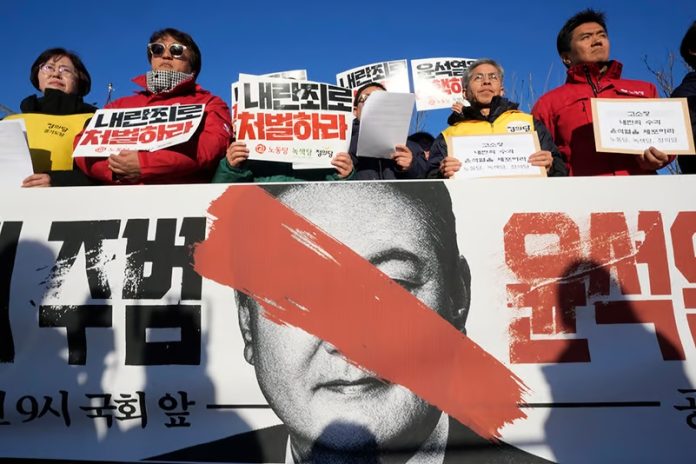South Korea is gripped by political upheaval as the opposition prepares to vote on an impeachment motion against President Yoon Suk Yeol, even as his allies vow to block the move. The vote, scheduled for Saturday (7 December) evening, requires at least eight members of Yoon’s party to support the motion to secure the two-thirds majority needed in the 300-member parliament.
Adding to the controversy, police have confirmed they are investigating Yoon for alleged “insurrection.” This development comes amid growing tensions after Defence Minister Kim Yong-hyun resigned, following reports that he urged Yoon to declare martial law. Army Chief Park An-su, who led the martial law command, also stepped down, telling parliament earlier today (5 December) that he was unfamiliar with the specifics of Yoon’s martial law notice.
The political crisis has triggered widespread protests in the capital, with demonstrators calling for Yoon to resign for a second consecutive day. However, a smaller group of his supporters also rallied in his defence, reflecting the deep divisions in South Korean society.
The turmoil has shaken the nation’s economy, with South Korean shares falling for the second consecutive day. Adding to the pressure, workers at Hyundai, the country’s largest carmaker, have joined walkouts demanding Yoon’s resignation.
In parliament today, both martial law commander Park An-su and Vice-Defence Minister Kim Seon-ho were questioned about their roles in enacting martial law. Park stated that he did not write the martial law notice and claimed to be unaware of the situation on the ground, while Kim said he only learned about the imposition of martial law through the news. (With inputs from agencies)




